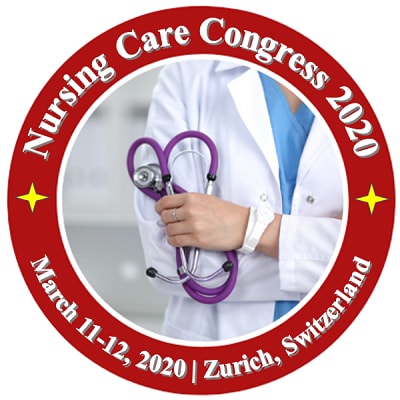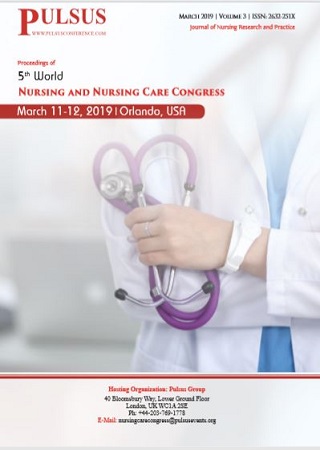Renowned Speakers
We’ve invited the top most influential speakers from around the world to give inspirational talks and lead practical workshops.
Conference Information
About Conference
PULSUS takes immense pleasure in inviting all the participants from across the globe to attend 6th World Nursing and Nursing Care Congress during March 11-12, 2020 at Zurich, Switzerland. This comprises of keynote presentations, verbal talks, productive poster presentations and exhibitions providing insights to the significance and proficiency of nursing in Healthcare.
Nursing Care Congress 2020 Conference features the theme Pathways to pioneering nursing care is an event intended to provide an exclusive platform for new researchers, scholars, nurses, health care professionals,surgeons, physicians, students and educators to show case their novel ideas and examine the latest developments, trends and key concerns received in the field of nursing and health care. The two days of educational program will incorporate keynote, oral presentations, and poster presenters on the propelled techniques as well as papers in all the fields of nursing in health care. Nursing Care Congress 2020 Conference intends to explore advances in nursing practice, health care management and education in relation to health disparities as well as a breadth of other topics. Nursing Care Congress 2020 will provide an opportunity for nursing practitioners and nurse educators to exchange research evidence, models of best practice and innovative ideas. It is a platform for nursing students, faculty, deans, researchers, and leaders to collaborate on topics affecting nursing education.
Attendees can:
- Take advantage of opportunities to learn insights about Nursing and Health Care from a variety of oral and poster presentations.
- Meet and network with nurses ranging from students to deans, faculty, and researchers.
- Take advantage of opportunities to collaborate with nurses from around the world.
- Attend prominent plenary sessions about relevant issues affecting nursing care and the recent techniques adapted in nursing care
Target Audience:
- Nurses
- Nurse Practitioners
- Health Care Professionals
- Doctors
- Professors, Researchers, Students and Technical Staff from the field of nursing
- Delegates from various industries
- Directors/Co-Directors of Research based companies across Europe and US who are investing in Nursing
- Physician Assistants
Scientific Sessions
Sessions 01: Nursing
Nursing is a self-sufficient and cooperative care of individuals of all ages, families, and gatherings, in all settings. Nursing consolidates the progression of well-being, disorder and the consideration of ineffectively, injured people. Nurses play a significant job in health promotion, counteractive action techniques, and care of people. This is the one of a kind courses of medical education which contents both theoretical and practical training provided to nurses for the purpose to prepare them as professionals. Nursing fit progress builds up the basic direction and experience of escorts all through their lord purposes for living for a definitive objective of guaranteeing the possibility of helpful organizations to individuals all in all.
Session 02: Nurse Practitioner
Nurse practitioners are advanced practice registered nurses who have obtained a degree in a nurse practitioner specialty. They perform examinations relevant to their specialty, make assessments and diagnose, order and perform diagnostic tests, perform minor surgical procedures, provide medications under the supervision of a licensed doctor. Nurse Practitioner can prescribe medication, examine patients, diagnose illnesses, and provide treatment, much like physicians do. Without nurse practitioners, there could end up being a shortage of highly skilled medical professionals since there simply won’t be enough doctors to go around.
Session 03: Nursing Informatics

Nursing informatics is a nursing claim to fame that combines nursing, data administration and the investigation of examination. The mix of nursing science, wellbeing records and information, alongside data innovation, is intended to make utilization of social insurance information through the whole medicinal services framework, with the objective of enhancing quiet care and results.
Session 04: Cardiovascular Nursing
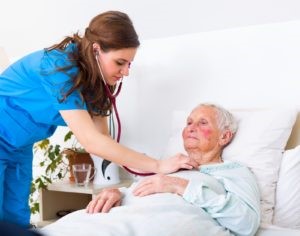
Cardiovascular care nurses treat and look after patients with an assortment of heart ailments or conditions. This can incorporate patients experiencing coronary conduit malady or congestive heart disappointment, or those recuperating from angioplasty or sidestep surgery. Cardiac nurses screen the hearts of patients of any age, and may help manage heart prescriptions and perform pressure test assessments all the time, or deal with more dire heart issues, for example, aiding defibrillation. This sort of nurse works intimately with a cardiologist to speed up quality nurture heart patients.
Session 05: Adult Health care Nursing
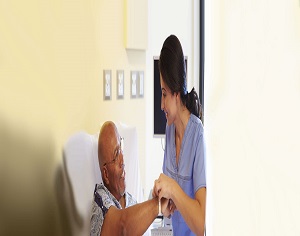
Adult Health care nursing concentrates on the procedure of basic leadership in dealing with the care of grown-up customers encountering basic conditions such are reality undermining as well as include different body frameworks. Complex therapeutic surgical conditions in grown-ups are talked about as far as pathophysiology, etiology, conclusion, and medications that depend on momentum inquire about. A shared care approach will be worried to meet the basically sick customer and his family's physiological, mental, and formative needs mulling over the customer's and his family's sociocultural setting. Understudies will utilize basic reasoning and critical thinking aptitudes to incorporate information gained in class into the nursing procedure while minding.
Session 06: Midwifery Nursing & Women’s Health Care Nursing

Ladies have swung to maternity specialists for backing and help with labor. Today's confirmed gynaecologists keep on providing this individual consideration, which speaks to an extension between customary birth practices and current innovation. Gynaecologic malignancies and women health nursing services is a specific field of prescription that spotlights on diseases of the female regenerative framework, including ovarian tumour, uterine growth, vaginal tumour, cervical growth, and vulvar malignancy. As pros, they have broad preparing in the finding and treatment of these tumours.
Session 07: Pediatric Nursing

Paediatric Nurses give protection and intense care in all settings to youngsters and Neonates. Paediatric Nurse Practitioners perform physical exams, analyse disease and harm, and give instruction and support to patients' families. They often work in the paediatric intensive care units with paediatricians and other healthcare providers. Parents frequently want to have their kids treated by medical caretakers and other well-being suppliers who are paediatric masters, since youngsters have exceptional medicinal service’s needs. Their bodies are developing and changing, and they frequently respond contrary to damage, ailment and even regular medicines.
Session 08: Critical Care Nursing and Emergency Nursing

Critical care nursing is the field of nursing with a focus on the utmost care of the critically ill or unstable patients following extensive injury, surgery or life-threatening diseases. Critical care nurses can be found working in a wide variety of environments and specialties, such as general intensive care units, medical intensive care units, surgical intensive care units, trauma intensive care units, coronary care units, cardiothoracic intensive care units, burns unit, paediatrics and some trauma center emergency departments. These specialists generally take care of critically ill patients who require mechanical ventilation by way of endotracheal intubation and/or titratable vasoactive intravenous medications.
Session 09 : Cancer & Oncology Nursing
Oncology nurses are associated with giving consideration and administering growth patients who are either incessantly or fundamentally ill. Oncology nurse practitioner keep observing their patients' physical conditions and recommend general prescription keeping in mind the end goal to detail manifestation administration techniques. These minding people are will undoubtedly enduring and demise yet a large number of them flourish due to the profound and continuous connections they create with their patients. Mostly oncology nurses work in claim to fame clinics. Barely any attendants' work in medicinal offices, ambulatory care centres or give home health mind. Since disease can happen to basically anyone, oncology medical caretakers work with youngsters and grown-ups of any age. They function as a component of a group with other growth care providers and care staff
Session 10: Public Health Nursing
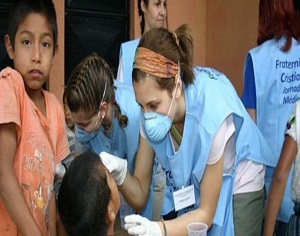
Public health nurses care for total population. By working with total community nurses, they are able to teach people about health issues, improve community health and safety and increase access to care. They believe a person's health is affected by factors such as genetic makeup, lifestyle and environment. Nurses go into communities to help people improve their health and prevent disease. Public health nurses also provide direct health care services, preventive care, screening services and health education.
Session 11: Geriatric Nursing
Geriatric nursing is the strong point of nursing identifying with more settled adults. Gerontological therapeutic overseers function as a group with more prepared adults, their families, and gatherings to reinforce sound developing, most noteworthy working, and individual fulfilment. The term gerontological nursing, which supplanted the term geriatric nursing in the 1970s, is viewed as being more relentless with the distinguishing strength more broad focus on prosperity and well-being, despite sickness. Gerontological nursing is basic to meet the prosperity needs of a developing people. Due to longer future and declining readiness rates, the degree of the masses that is seen as old is growing. Near to 2000 and 2050, the number of people on the planet who are over age 60 is expected to increase from 605 million to 2 billion. In 2010, seniors (developed 65 and more prepared) made up 13% of the people of the US. By 2050, it degrees will addition to 21%.
Session 12: Occupational Health Nursing
Occupational health nursing, then called industrial nursing, began in the late 1800s in the north eastern part of the United States. Betty Moulder worked for a group of coal mining companies in Pennsylvania, and Ada Stuart was employed by the Vermont Marble Company, providing health services for ill and injured workers and their families. Since that time, the scope of practice in occupational and environmental health nursing has greatly expanded with increased emphasis on health promotion and health protection services. Many factors have influenced the evolution of occupational health nursing practice. Among them are the changing population and workforce, the introduction of new chemicals and work processes into the work environment, increased work demands, technological advances and regulatory mandates, increased focus on illness/injury prevention, and a rise in health care costs and workers' compensation claims.
Session 13: Surgical Nursing
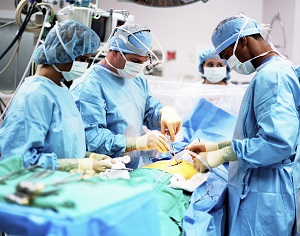
Surgical nurses must be conscientious, adaptable, ready to juggle various needs without thinking twice, adroit with specialized abilities, cooperative individuals and must have magnificent relational abilities. They should likewise have the capacity to think basically in a quick paced, testing condition. Passionate stamina is fundamental as the parts require confronting human pain and perilous circumstances and managing on edge relatives. There are numerous surgical sub-claims to fame for getting the hang of, including neurosurgery, heart surgery, injury, paediatrics, oncology, general surgery, urology, ophthalmology, ENT, dental, orthopaedics, plastic and reconstructive, and transplant surgery. Despite your picked territory of perioperative nursing, you'll be on a way of vocation long discovering that offers challenges, monetary prizes, and open doors for proficient development.
Session 14: Nephrology and Urology Nursing
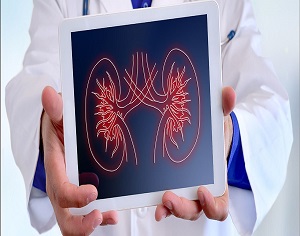
Nephrology Nursing is the field of nursing with a focus on the most extreme consideration of the discriminatingly sick or unsteady chronic kidney patients. Contamination revultion and nursing consideration is the control concerned with turning away nosocomial or health awareness related disease, a functional (as opposed to scholastic) sub-order of the study of disease transmission. Infants who need escalated restorative consideration are regularly conceded into a unique region of the clinic called the Neonatal serious care and nursing consideration. The part of backing in discriminating nursing consideration: Critical Care Nurse work in a wide assortment of settings, filling numerous parts including bedside clinicians, attendant teachers, nurse analysts, nurse supervisors, clinical medical caretaker authorities and nursing professionals. Measurements of Renal Care Nursing's mission is to give attendants exact, current, and applicable data and lodging to exceed expectations in discriminating consideration rehearse.
Session 15: Psychiatric and Mental Health Nursing

Psychiatric nursing is appointed role of a nursing that has specialized in mental health and cares for human of every age with mental illness or mental distress, bi polar disorders, psychosis and much more nurses in stream receive specific training in psychological remedies building a therapeutic alliance dealing with challenging behaviour and administration of psychiatric medication each mental illness has its own function, signs and symptoms .
Session 16: Orthopedcis and Trauma Nurse
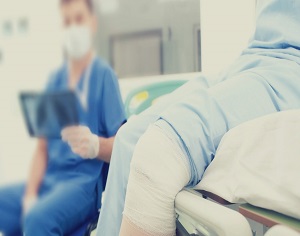
Orthopedics is a branch of medicine that focuses on the musculoskeletal system, which consists primarily of muscles and bones. Disorders, diseases, and injuries to this vital system can be painful and devastating. Orthopedic nursing focuses on the prevention and treatment of musculoskeletal disorders. These orthopedic issues include conditions like arthritis, bone fractures, broken bones, joint replacements, genetic malformations, arthritis, and osteoporosis. Orthopedic nurses are familiar with traction, casting, mobility devices, and pain management. When musculoskeletal conditions require surgery, orthopedic nurses assist physicians with preparation for the procedure and assists patients with their postoperative recovery. An orthopedic nurse is an expert in orthopedic conditions and caring for patients experiencing these conditions.
Session 17: Otorhinolaryngology and ENT Nurse
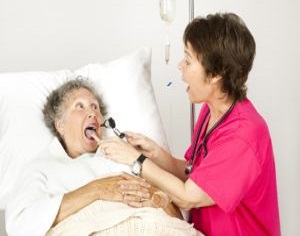
An otorhinolaryngology nurse - also known as an ear, nose and throat nurse - cares for patients with diseases or injuries of the ear, nose, throat, head or neck. Often referred to as ENT nurses, otorhinolaryngology nurses assist in the treatment of both acute and chronic conditions, including ear infections and allergies, laryngitis, sinusitis, tonsillitis, sleep apnea and injuries such as broken bones. ENT nurses treat all ages of patients, from infants to the elderly, with a sizable pediatric patient population.
Session 18: Travel Nursing
Travel nursing is a nursing assignment concept that developed in response to the nursing shortage. This industry supplies nurses who travel to work in temporary nursing positions, mostly in hospitals. While travel nursing traditionally refers specifically to the nursing profession, it can also be used as a blanket term to refer to a variety of travel healthcare positions, including physical therapy, occupational therapy, speech-language and even doctors and dentists. Reasons cited for pursuing travel nursing opportunities include higher pay, professional growth and development, and personal adventure. Agencies may submit applications for numerous positions concurrently on behalf of a traveller. A travel nurse is a nurse who is hired to work in a specific location for a limited amount of time. Travel nurses typically work 13week periods in one area and move around the country depending on where they are needed. Because the demand for nurses is so high, there are often shortages in certain areas, and a traveling nursing will be hired to come in and work in a specific position for a short amount of time. The major benefit of travel nursing is that you get to choose where you live and work. If you are tired of your current location or want to get away from cold weather for the winter, you have the ability to find a job in a different location and move for a short period of time.
Session 19: Forensic Nursing

A forensic nurse is someone who works with crime victims to collect medical proof and provide expert testimony which will be employed in court. In step with the International Association of Forensic Nurses (IAFN), forensic nurses do far more than address victims' physical and emotional desires. It is defined as the function of the nursing process to public or legal proceedings, and the function of forensic health care in the scientific investigation of trauma and/or death related to abuse, violence, criminal activity, liability, and accidents.
Before there was a specialty recognized as forensic nursing, the term used was clinical forensic medicine. This term specifies the use of clinical practices to support judicial proceedings to protect a victim, usually, after death, it will happen. It was not until the late 20th century that medical professionals wanted more team work between the medical and legal systems. In the United States, this problem began to be addressed. Most nurses practice with the complete framework of body, mind, and spirit. With forensic nursing established, the role of a nurse was changed to also include the law.
Session 20: Gerontological Nursing
Gerontological nursing is the specialty of nursing pertaining to older adults. Gerontological nurses work in collaboration with older adults, their families, and communities to support healthy aging, maximum functioning, and quality of life. The term gerontological nursing, which replaced the term geriatric nursing is seen as being more consistent with the specialty's broader focus on health and wellness, in addition to illness Gerontological Nursing provides an opportunity to explore the challenges of aging through the lens of transitions. They examine how aging adults respond to transitions such as health challenges, changes in living environments, existential issues, family issues, and dying and death. While physical health issues are addressed, the major emphasis lies in how older adults understand and process transitions in older years and how nurses can facilitate the process for their patients or clients and family members. We also examine the challenges faced by emerging sub-populations of aging adults, such as those with developmental disabilities, the incarcerated, the homeless, as well as those with HIV/AIDS.
Session 21: Nurse Anaesthetist

Nurse anaesthetist is an authorized proficient who gives a similar anaesthesia benefit as an anaesthesiologists, specialists. Nurse anaesthetists are sole suppliers of anaesthesia in around 66% of every single rustic doctor's facility in the United States, empowering these human services offices to offer obstetrical, surgical and injury adjustment services. Nurse anaesthetists rehearse in each setting in which anaesthesia is conveyed: customary doctor's facility surgical suites and obstetrical conveyance rooms; basic access clinics; mobile surgical focuses; the workplaces of dental specialists, podiatrists, ophthalmologists, plastic specialists and torment administration experts; and military, Veterans Affairs' and Public Health Service social insurance offices.
Session 22: Continuing Nursing Education Updates
Continuing Nursing Education (CNE) refers to courses specifically for nursing professionals. Continuing education is necessary for nurses to perform competently, and respond positively to advanced medical, and technological changes in this age of rapid change, and to prevent obsolescence. It is needed to meet the expressed needs or interests of nurses to enable them to provide current and ultimately safe and effective patient care. It consists of planned learning experiences beyond a basic nursing educational program. These experiences are designed to promote the development of knowledge, skills, and attitudes for the enhancement of nursing practice, thus improving health care to the public.
Session 23: Health Care
Health care is first contact care delivered by generalists, dependent on team work, which is accessible, comprehensive, coordinated & activates by patients choice. It is the provision of integral accessible by clinicians who are acceptable for addressing a large majority of personal medical needs, developing a sustained partnership with patients and participating in the context of family and community. It is the front line of the medical system and to take the initial steps to provide care for any health problems that patients may have. Health care providers takes care of individuals in society character and organize the resource available in health care system to the best advantage of patient.
Abstract Submission Criteria & Eligibility
PRESENTATION REQUIREMENTS:
Authors requested to follow the abstract submission guidelines by downloading abstract template. Presenting authors are responsible for registration, travel, and hotel costs.
Note: Those with accepted abstracts will receive an acceptance mail allowing them to register for the conference.
Abstracts will be compiled, and conference books are made available to participants at the conference.
Any presenter who is unable to attend should arrange for another qualified individual to present the paper/poster in question. If such a change is necessary, please notify our conference team.
SUBMISSION OPTIONS:
Oral paper presentations will have 30-minute time slots and be clustered by theme into sessions. The keynote session will have for 45-minute time slot, workshop/ special session will have 60-minute time slot and symposium will have 60-minute time slot followed by 5-minute Q&A session.
Graduate & Masters students are eligible to submit their abstracts under poster and e-poster presentation category.
Ph.D. students are eligible to submit their abstract under special YRF (young researcher’s forum), poster and e-poster presentation category.
NOTE: YRF category includes short oral presentation especially for Ph. D. students
Extended abstract: Submissions should utilize the Abstract Template. Papers submitted in this category may represent original empirical research, theoretical development, reviews, or critiques.
Abstract Submission Deadlines
Early Bird Abstract Submission: December 05, 2019
Second Line Abstract Submission: January 20, 2020
Final Submission Deadline: February 12, 2020
Visa Requirements
Nursing Care Congress 2020 organizing committee hereby reiterates that we are NOT authorized to assist with any Visa application works. You may be required to submit a Letter of Invitation, Letter of Abstract Acceptance and Registration Payment Receipt to the embassy.
Letter of Invitation: A Letter of Invitation is a proof that your paper submission and registration application are accepted by the conference committee board. It will be stated in English and may help with your visa application.
Token Amount: Token amount of USD 200 can be paid and payment receipt can be a proof for payment and may help with your VISA application.
**SHOULD YOUR APPLICATION BE DENIED, ORGANIZING COMMITTEE CANNOT CHANGE THE DECISION OF THE MINISTRY OF FOREIGN AFFAIRS, NOR WILL WE ENGAGE IN DISCUSSION OR CORRESPONDENCE WITH THE MOFA OR THE EMBASSY ON BEHALF OF THE APPLICANT. THE REGISTRATION FEE WILL BE REFUNDED WHEN THE VISA APPLICATION OF INDIVIDUAL IS DENIED AND SHOULD SUBMIT VISA REJECTION PROOF**
Market Analysis
The demand of Nursing staff in European countries and all over the world is rising day by day. Many are facing a lot of shortage in nurses to optimize the healthcare needs. As per the recent statistics, France has shortage of nurses with 700 nurses per 100,000 inhabitants. From survey data company, Jobfeed analyzed over 1.5 million vacancies for nurses in the near future. This shows that there is significant demand and growth in market in the field of nursing. In Switzerland, currently there is a shortage of 50,000 nurses and this would be increased 25% by 2025. There is also a need to increase number of Colleges and Universities in Switzerland. In Future, more senior citizens globally require Long term care. Europe may be facing 1 million shortages of nurses by 2020.
Switzerland spends 12.4% of its GDP on health, or US$7 919 per capita (OECD, 2017); 46% is spent on inpatient care, 29% on outpatient care and 12% on pharmaceuticals dispensed to outpatients. The share of inpatient care is much higher than the OECD average (33%), for example due to longer hospital stays compared to most other OECD countries, while the share of pharmaceuticals is lower (OECD average: 20%). The relative share of expenditure by type of health care services has remained stable over time (OECD, 2017). To date, reimbursement of basic health care services is uniformly regulated on a national level, but costs for equivalent health services vary significantly across cantons, as well as private or complementary health insurance coverage. To increase transparency and comparability of Swiss health care, Swiss Diagnosis Related Groups (DRGs) became effective on 1 January 2012 on a national level. According to the recent revision of the Swiss Health Insurance Act, this new classification system aims at standardizing reimbursement of health care services in acute care settings.




